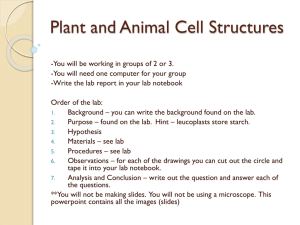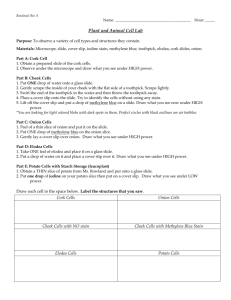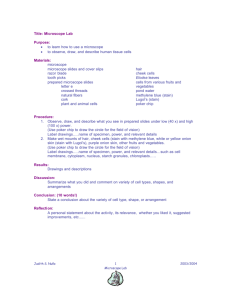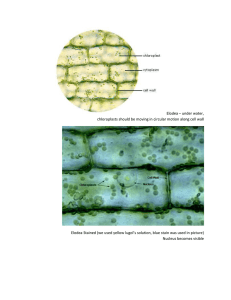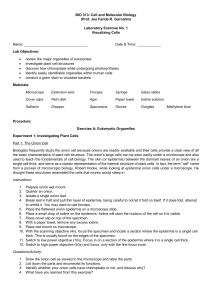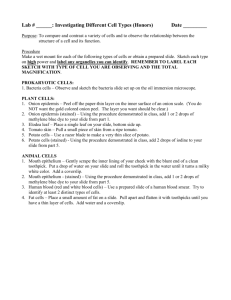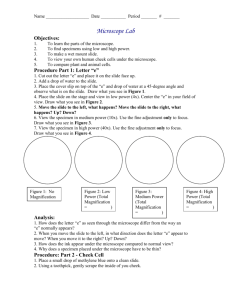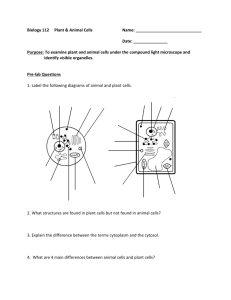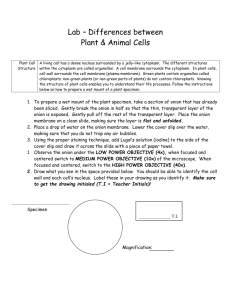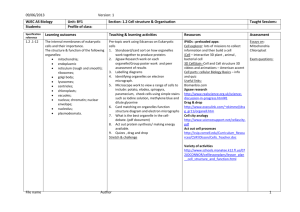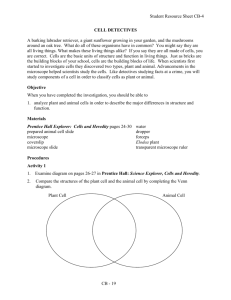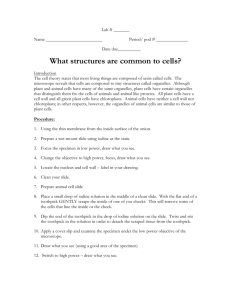Microscope Lab
advertisement
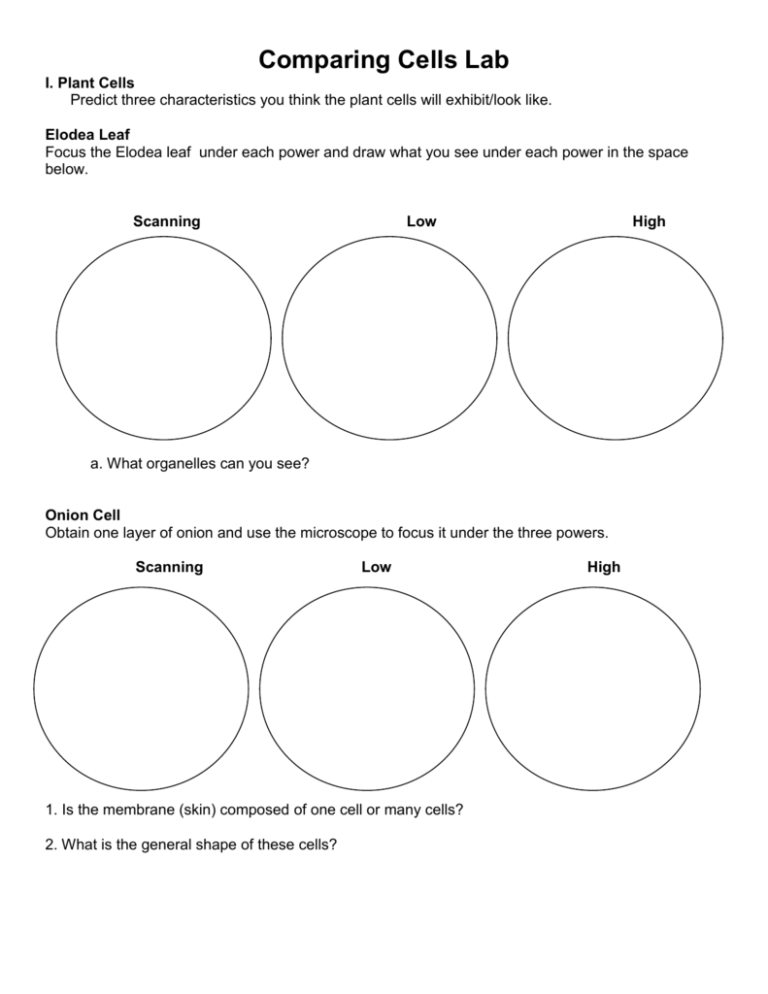
Comparing Cells Lab I. Plant Cells Predict three characteristics you think the plant cells will exhibit/look like. Elodea Leaf Focus the Elodea leaf under each power and draw what you see under each power in the space below. Scanning Low High a. What organelles can you see? Onion Cell Obtain one layer of onion and use the microscope to focus it under the three powers. Scanning Low 1. Is the membrane (skin) composed of one cell or many cells? 2. What is the general shape of these cells? High Now stain the cells using Methylene blue. Draw and describe the differences. High Power Differences after staining: Potato Cells With your scalpel gently scrape the potato to obtain some cells. View these cells under the microscope and record your observations. Scanning Low High Use the Methylene blue to stain the cells and under high power record the differences after staining. High Power Differences after staining. Obtain some new potato cells and this time use iodine to stain the cells. Iodine indicates the presence of starch. Record your observations for the Low power below: Low Power II Animal Cells 1. Before you observe the cells, predict three traits you expect to observe in the animal cells. 2. Write down three things you think will be different in the animal cells than in the plant cells you looked at. Human Cheek Cells Gently take a toothpick and scrape the side of one of your group member’s cheek. Rub this on the slide. Stain this with Methylene Blue. Record your observations below: (Label any structures you draw) Low High Mystery Cells Obtain the mystery cells slides. Focus them under the microscope and identify them as either a plant or animal cell. A. Plant or Animal ____________________ Drawing Reasoning: B. Plant or Animal _________________ Drawing Reasoning Analysis Questions 1. Describe 3 differences between the plant cells and the animal cells you looked at. 2. Thinking about how the structure and arrangement of cells contributes to the functioning of the organism, propose reasons for the differences you mentioned. 3. Why do you think we stained the cheek cells but not stain the Elodea cells? 4. Which two of the following three were more similar Elodea Leaf, Potato, Onion? Why do you think accounts for the differences and similarities? 5. a. What type of organic molecule is starch made of? _________________________________ b. What is the function of starch in plants? c. Why do you think that the potato tested positive for starch? 6. How do the shapes of Animal cells compare to the shapes of plant cells? b. Propose a reason for the difference. c. Would changing the shape of either type of cell be an advantage for the organism? Why or why not? 7. a. What organelles did you see under the microscope? b. Based on what you learned when we built in the giant cell project, why do you think that we didn’t see all of the organelles? c. What could we use to see the other organelles?
